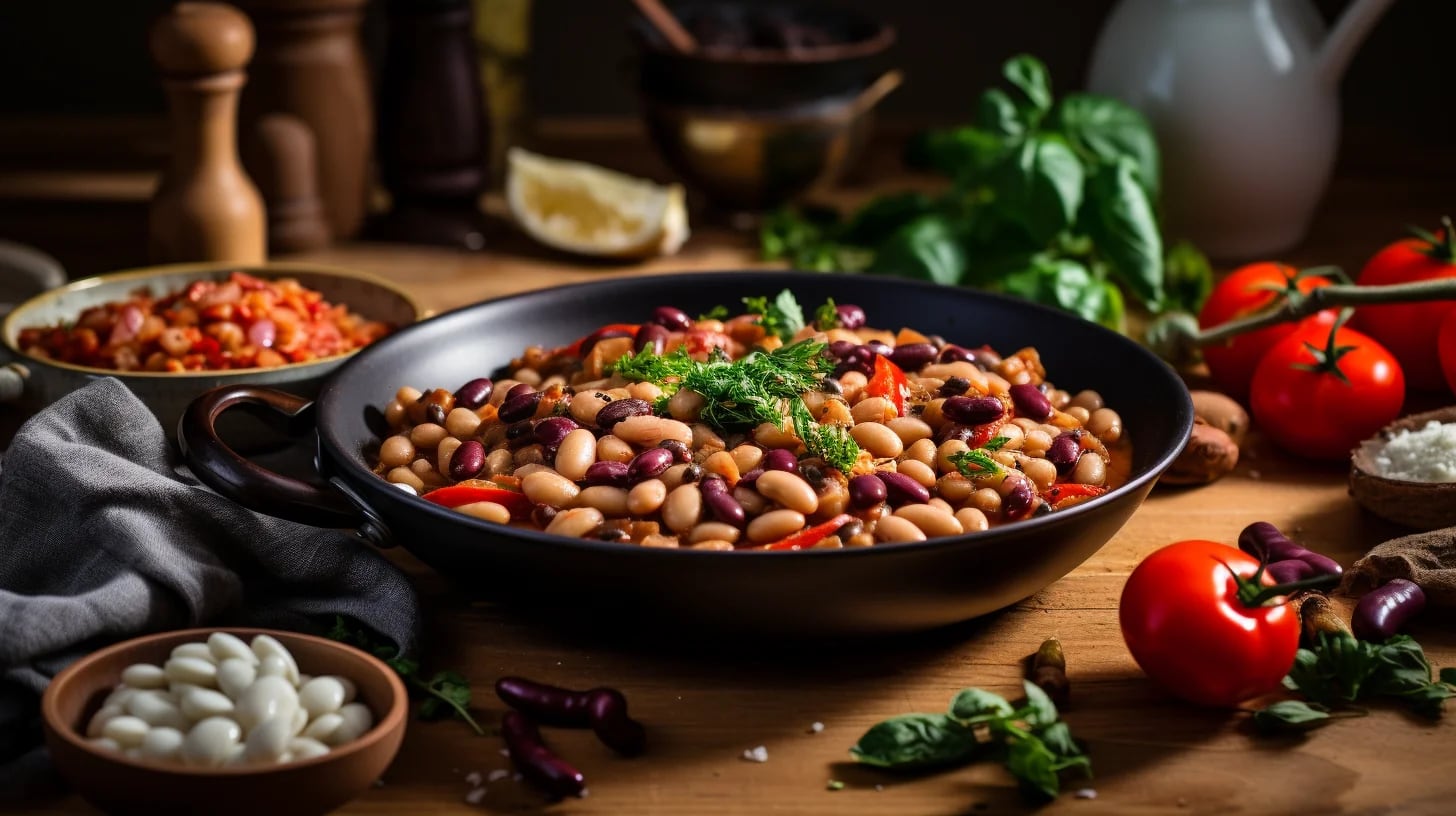Get into food vegan It can be an experience full of flavor for those who choose it. Adopting a plant-based lifestyle is presented as a healthy choice, reducing the risk of type 2 diabetes and heart disease compared to diets rich in red meat, according to Harvard Health Publishingspecialized in health by Harvard University.
Essential elements of a vegan diet include grains, nuts and a variety of fresh produce. Legumes, tofu, tempeh, whole grains and vegetables Green leaves are important sources of protein and iron necessary to obtain the benefits of this type of diet.
However, there are other components that are not always included in dishes. vegans and they are key to health.
The b12 vitamin It is essential to maintain the health of neurons and blood, according to the Pan American Health Organization (OPS). But This micronutrient is more easily found in foods of animal origin, which represents a nutritional challenge for vegan dishes, according to National Institutes of Health in the United States (NIH).
The b12 vitamin, absent in most plant foods, has been the main challenge for vegan diets. The micronutrient is available through supplements, but some research suggests it can also be found in some marine plants and leafy greens, although in smaller quantities compared to animal-based dishes.
Some plant-based foods that contain vitamin B12 are hijiki algaewith an average of 0.021 micrograms (mcg), and the popular nori seaweed, which contain between 1.03 and 2.68 mcg per leaf. The mushrooms guy button and shiitake They present 0.04 and 0.945 mcg respectively per 20 grams of dry weight. As for fermented foods, soy yogurt stands out with a contribution of 20 mcg per cup, according to a scientific review published in the magazine specialized in reviews, Taylor & Francis Online.
The study highlights that a varied diet can achieve the daily recommendations for intake of b12 vitamin with products of plant origin. In addition to fungi and algae, processed foods such as cereals, bread and drinks have a low content of the micronutrient. Among the alternatives to obtain it, “ready-to-mix” drinks composed with melon, pineapple and carrotwhose contribution is 8.6 mcg per kilogram, according to a study published in Frontiers in Plant Science.
Other conclusions of the research suggest that nanoparticles could be an answer against deficiency of b12 vitamin. Among its advantages is the acceleration of the food fortification process without resorting to genetic modification. Also mentioned is the integration of systems focused on improving the air and the cultivation of plants with applications of nanoparticles.
If a person lacks safe access to b12 vitamin, increases the danger of experiencing health problems. It is estimated that the percentage of deficiency ranges between 0 and 86.5% in adults and the elderly, up to 45% in infants, and from 0 to 33.3% in children and adolescents, in the United States and the United Kingdom, according to research published in Sage Journals.
Vegans are at greater risk of vitamin deficiency. b12 vitaminespecially women of childbearing age, pregnant women, lactating women, older adults and those who consume dishes from a vegetarian to vegan diet, according to a study published in European Journal of Nutrition.
It is recommended to seek professional guidance for any symptoms, such as pale skin, chronic fatigue, and shortness of breath when exercising.
Proteins are essential to keep the skin in optimal condition. In vegan diets, there are different foods that can provide them. The legumesas beanschickpeas and lentils, are the main ones and provide micronutrients, complex carbohydrates and essential phytochemicals. This combination makes them ideal for people with diseases such as diabetes and celiac disease, as well as for those seeking a long-lasting feeling of satiety, according to a study published in Frontiers in Nutrition.
In addition, it was found that its regular consumption reduces the risk of coronary heart disease, reduces cholesterol and maintains healthy levels of sugar in blood, blood pressure and metabolic syndrome. Some components of legumes, such as carotenoids and flavonoids, have been identified as beneficial health factors, although more studies are needed to fully understand the mechanisms of action.
Other foods such as peas and peas offer protein and large amounts of calciumiodine, ironselenium and zinc. However, careful planning is essential, as some plant-based meat substitutes, especially deli meats, can have high levels of sodium and added sugar. In addition, it is highlighted that many of these products lack certain essential vitamins, such as b12 vitamin.
Therefore, experts suggest a combination of plant-based meat substitute products in a balanced diet that includes a higher amount of fruit, vegetables, legumes integral, nuts and seeds, according to research published in Journal of Food Composition and Analysis.
When considering a plant-based diet, it is essential to take precautions. While some protein products vegetables They are rich in fiber and essential nutrients, the variability in vitamin and mineral content depending on the protein source and the type of product requires attention.
The deficiency of b12 vitamin, a problem that affects diverse populations, from vegans to those with absorption disorders, poses serious health risks. It is essential for the formation of red blood cells. It is found in foods of animal origin, and its lack can trigger anemia with symptoms such as pallorweakness and fatigue. In more severe cases, prolonged deficiency can result in irreversible neurological damage, the symptoms of which are tingling, loss of sensation and muscle weakness.
The absorption of b12 vitamin It occurs in the ileum and depends on intrinsic factor, a stomach protein. Deficiency can be caused by various factors, such as bacterial overgrowth, intestinal diseases, medications, or a lack of intrinsic factor. The diagnosis is made through blood tests. To prevent and treat it, supplementation is recommended, especially in vegans.
However, when there is neurological damagetreatment involves administering the vitamin intramuscularly or intravenously, although severe symptoms may persist even with treatment.

